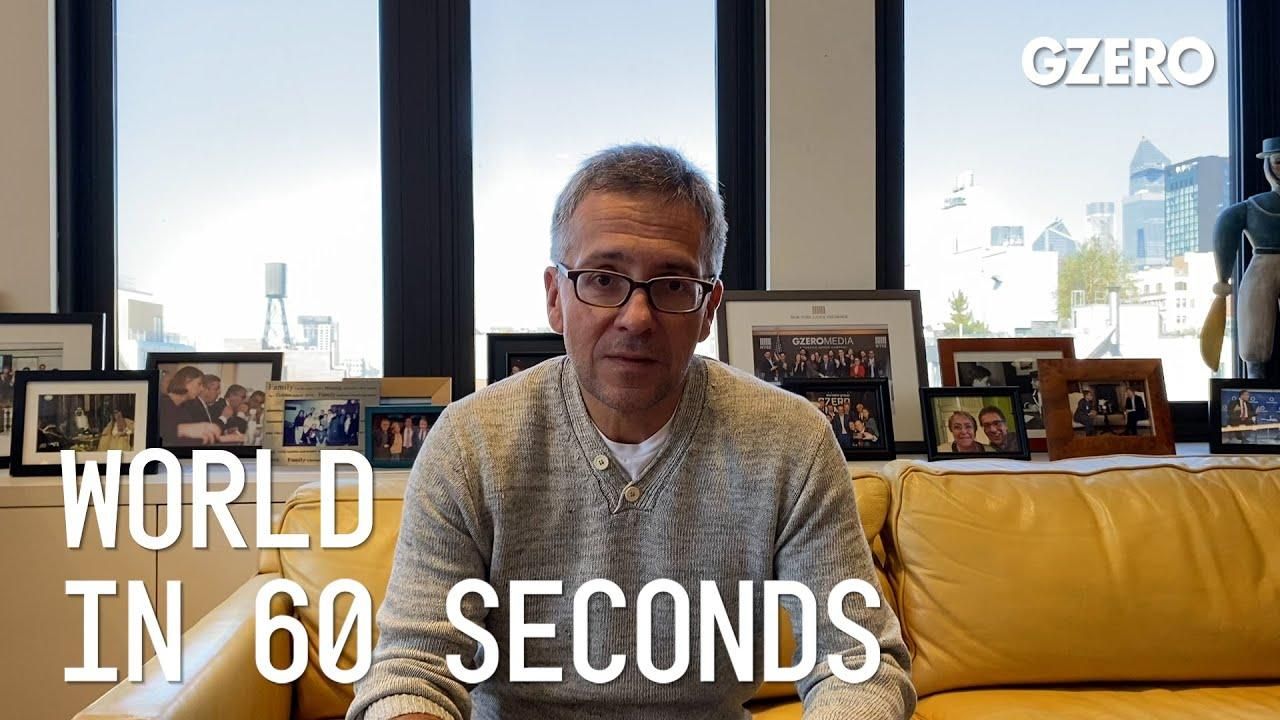Ian Bremmer shares his insights on global politics this week on World In 60 Seconds.
Will China's Communist Party Congress be a game changer?
I wouldn't call it a game changer, but I think there are a lot of people out there that are hoping that there's going to be loosening of the zero-COVID policy. They're hoping that there's going to be more of an opening in terms of state control of financial institutions and technology, sort of state-owned enterprises after Xi Jinping gets his third term. I see no reason to believe that. If anything, there's more consolidation of power. There are more loyalists around him and top party positions, and as a consequence, he can do more of what he wants, which is what we've been seeing over the last few years. So I think it's actually going to be a lot more consistency as opposed to a game changer, but that's my view.
As the 60th anniversary of the Cuban Missile Crisis approaches, how should the world react to this new nuclear threat from Putin?
Yeah. Well, I wasn't around, of course, for the first Cuban Missile Crisis, and I kind of hope that I won't be around for the second. I'd like to avoid it. I recognize this is dangerous. I don't like all the talk about nuclear weapons potentially being used. We should take it seriously, but we should not in any way overestimate the likelihood. We need to recognize that Putin using a nuke would be existentially a risk for him, both in terms of ordering it to get done internally, whether that line of command would actually work, and also, of course, what the external reaction would be. I think we're still very far from that, but I recognize it's a possibility, a plausibility in a way that it wasn't even a few months ago. And of course, that's very deeply disturbing.
With oil workers striking, is Iran on the cusp of another revolution?
Well, of course we saw some of that during the last Iranian revolution. It's dangerous. It would affect their economy. The Iranian government is going to need to go in and crack a lot of heads, but then they're also going to need to provide some support for the Iranian people that creates more sustainability, more willingness to actually accept a conservative theocratic rule. It's becoming harder, but let's not undermine the fact that surveillance mechanisms, big data technology, also makes it easier for authoritarians to stay in power. I'm still skeptical that what we're seeing here is a revolution and the end of the Iranian government as it is presently, but there's no question this is a big threat to them. We're going to watch it very carefully.
More For You
1,170: The number of high-rise buildings in Kyiv that were left without heating following a barrage of Russian attacks last night on Ukraine’s capital and its energy facilities, per Kyiv Mayor Vitali Klitschko.
Most Popular
What We’re Watching: US critical minerals summit, Rafah crossing reopens, Border violence in Pakistan
U.S. President Donald Trump and Japanese Prime Minister Sanae Takaichi hold up signed documents regarding securing the supply of critical minerals and rare earths, at a bilateral meeting at Akasaka Palace in Tokyo, Japan, October 28, 2025.
Representatives from the European Union, United Kingdom, Japan, and others will meet in Washington this week to discuss a strategic alliance on critical minerals.
Hard numbers: Large protests in Czechia, UAE-linked firm has large stake in the president’s company, & More
80,000: The number of people estimated to be in the streets of Czechia on Sunday to show their support for President Petr Pavel after he blocked the nomination of an environmental minister who performed the Nazi salute and posted Nazi memorabilia.
The US has started handing $1,000 to the bank accounts of newborn babies. But can policies like this one help boost sagging birthrates in advanced democracies?
